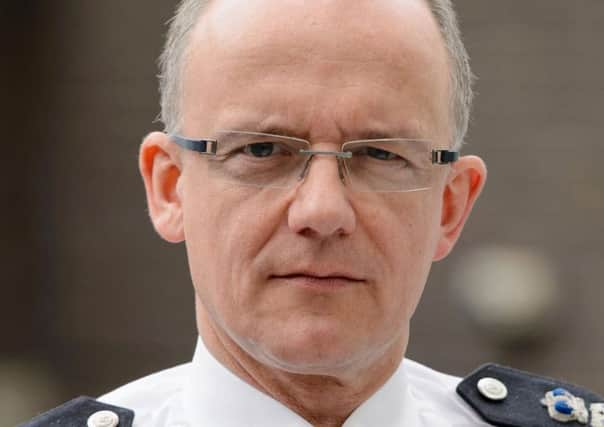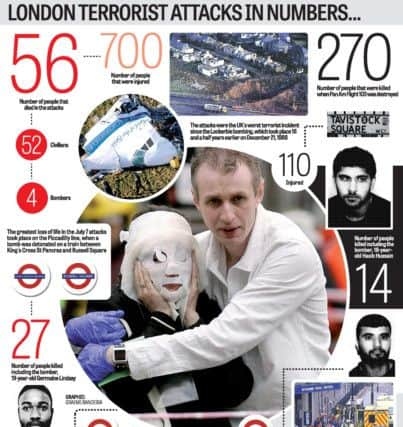7/7: The new threat now facing Britain


Metropolitan Police Assistant Commissioner Mark Rowley appealed to communities to “step forward” in the fight against radicalisation, saying their help is now more crucial than ever to security services’ efforts to prevent fresh attacks.
In an interview with the Press Association ahead of the tenth anniversary of 7/7, Mr Rowley said officers are now faced with a “completely different profile” as IS exploits modern technology in an attempt to create a “violent cult”.
Advertisement
Hide AdAdvertisement
Hide AdHe said: “The threat we face today is very different. More than ever before, we need the help of communities. It’s absolutely essential that everyone plays their part.”


READ MORE...
Advertisement
Hide AdAdvertisement
Hide AdMr Rowley described how the threat had changed since four suicide bombers attacked London’s transport network on July 7 2005, killing 52 people.
“We’ve seen another step change in terrorism in the way it works and connects across the world in the last couple of years,” he said.
“We are not simply confronting a terrorist organisation like al Qaida or like the IRA which works in a secret way and plots and plans what it wants to do secretly.
“Tight organisations planning terrorist atrocities, going for complex, high-impact attacks was where we were.
Advertisement
Hide AdAdvertisement
Hide Ad“We are dealing with an organisation that uses marketing, uses the internet and is trying to create a corrupt violent cult that is going to act in its name.”
IS, also known as Isil, is creating an “enormous” list of potential targets which is “not very focused”, Mr Rowley said.
“They are not necessarily focused on massively complicated attacks. They are focused on the propaganda value.
“We still have some individuals interested in sophisticated attack planning but you’ve got this breadth now.
Advertisement
Hide AdAdvertisement
Hide Ad“You’ve got the way it reaches into people’s homes in terms of recruitment, you’ve got the way somebody on one side of the world can organise a plot on the other side of the world through the internet, you’ve got all those different dynamics which are very different to what we were dealing with in 2005.”
The “diversification” in ways of communicating seen in recent years “gives most of us fantastic opportunities” but provides terrorists with “different ways to work”, he said.
Arrest figures indicate terror suspects are now being detained at a rate of around one every day.
Mr Rowley described the level of police activity as “extraordinary” but said that ultimately communities defeat terrorism.
Advertisement
Hide AdAdvertisement
Hide Ad“We need everyone’s help, whether it is about spotting strange behaviour which might be somebody planning something, whether it is the change in behaviour of an individual which is significant in terms of them being drawn into extremism and terrorism,” he said.
“We will keep doing everything we possibly can do to disrupt things going on, but with this volume, with this reach into communities over the internet, more than ever we need the help of communities, schools, health institutions, we need everyone to be helping to step forward in confronting this threat.”
He said the Tunisia beach massacre showed how terrorism is “connected across the world” and described the potential for “lone wolf” attacks as “a big part of the challenge we face today”.
Asked if Britain is safer today than at the time of 7/7, he said it was not possible to make “absolute” comparisons.
Advertisement
Hide AdAdvertisement
Hide Ad“We’ve got a higher volume of people we are concerned about, we’ve got a wider range of attack methods, we’ve got to look further afield and overseas so there are some very significant challenges in that.”